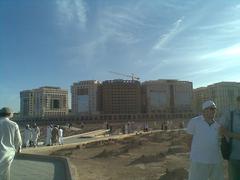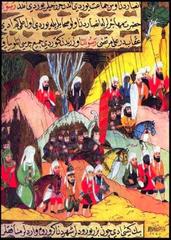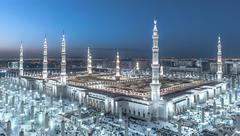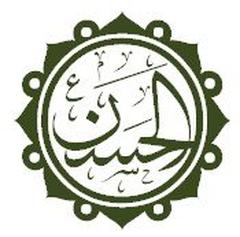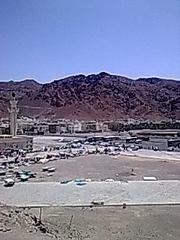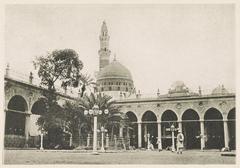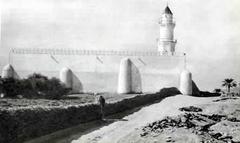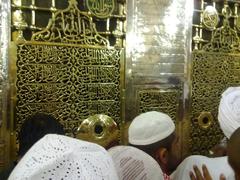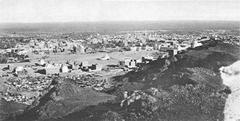Visiting Al Romat Mountain Medina, Saudi Arabia: Guide, Tickets, Hours, and Tips
Date: 15/06/2025
Introduction: History and Significance
Al Romat Mountain, also known as Jabal al-Rumat or the “Mount of Archers,” is one of Medina’s most revered historical landmarks. Situated roughly 4–5 kilometers north of Al-Masjid an-Nabawi (the Prophet’s Mosque), this modest mountain is renowned for its critical role during the Battle of Uhud in 625 CE (3 AH). Here, fifty archers under the command of Abdullah bin Jubayr were stationed to guard the rear of the Muslim army, providing a pivotal lesson in obedience and discipline that remains central to Islamic tradition (Saudipedia; Visit Al Madinah).
The geographical prominence of Al Romat Mountain provided both a tactical vantage point in the battle and a lasting symbol of reflection, sacrifice, and spiritual contemplation. Today, the mountain attracts pilgrims, history enthusiasts, and travelers keen to explore both its natural beauty and its enduring legacy in Islamic civilization (Destination KSA; Wikipedia).
Accessible year-round, free of charge, Al Romat Mountain is conveniently reached from Medina’s city center by taxi or private car. Visitor facilities include interpretive signage, shaded areas, and the availability of guided tours to enhance understanding of the site’s historical and spiritual significance (Audiala; AroundUs). This guide covers everything you need to know about visiting, from practical tips and historical context to recommended nearby attractions.
Contents Overview
- Early History and Geographic Context
- The Battle of Uhud: Strategic and Religious Significance
- Archaeological and Cultural Legacy
- Visitor Information: Hours, Tickets, Accessibility, and Tips
- Nearby Historical Sites and Recommended Itineraries
- Frequently Asked Questions (FAQ)
- Summary and Travel Advice
- Sources and Further Reading
Early History and Geographic Context
Al Romat Mountain stands as a solitary outcrop north of Medina, its name “Uhud” derived from the Arabic for “one,” reflecting its isolation from surrounding ranges (Destination KSA). The region’s fertile valleys made Medina a hub for agriculture and trade long before Islam, with diverse Jewish and Arab tribes populating the area (Learn Religions; Medium). The unique volcanic landscape, including Mount Uhud and Al Romat Mountain, has shaped Medina’s history and identity (Facts.net).
The Battle of Uhud: Strategic and Religious Significance
The Battle of Uhud, fought in 625 CE, is a defining event in Islamic history. The Prophet Muhammad’s army took defensive positions at the base of Mount Uhud, ordering fifty archers to secure Al Romat Mountain to prevent the Meccan cavalry from flanking them (Visit Al Madinah). However, a premature departure by many archers—misinterpreting the battle’s progress—allowed a surprise attack, resulting in heavy Muslim losses, including the martyrdom of Hamzah ibn Abdulmuttalib (Saudipedia).
This episode is central to Islamic teachings about obedience, unity, and faith. The Quran references the events at Uhud (notably Surah Al-Imran, 3:152-155), emphasizing the importance of steadfastness and trust in divine wisdom (Wikipedia).
Archaeological and Cultural Legacy
Archaeological finds at Mount Uhud and Al Romat Mountain—including ancient inscriptions and artifacts—provide insight into the early Islamic period and the realities of medieval warfare (Saudipedia). The mountain’s flora, such as acacia and almond trees, adds to its natural charm, while the nearby graves of the Uhud martyrs serve as a place of remembrance for millions of visitors each year (Destination KSA; Facts.net).
Visitor Information: Hours, Tickets, Accessibility, and Tips
Visiting Hours
Al Romat Mountain is open to visitors daily, generally from sunrise to sunset, with most activity between 8:00 AM and 6:00 PM. Early mornings and late afternoons are best for comfort and photography.
Tickets and Entry
No tickets or entrance fees are required. Entry is free, and donations for site preservation are welcomed (meccamedina.net).
Accessibility
- Location: 3–5 km north of the Prophet’s Mosque (AroundUs)
- Transport: Reachable by taxi, ride-sharing apps, or private vehicle. Public transport options are limited.
- Terrain: Natural, uneven, and moderately steep in places. Not fully accessible for wheelchair users, though the base area is manageable for most.
- Facilities: Shaded rest areas, interpretive signage, seasonal vendors, and nearby restrooms. Bring water and sun protection.
Best Time to Visit
October to March is ideal due to cooler weather (15–30°C). Summer visits should be timed for early morning or late afternoon to avoid extreme heat (easeweather.com).
Safety and Etiquette
- Dress modestly.
- Stay hydrated and use sun protection.
- Respect the site’s religious significance—quiet reflection is encouraged.
- Photography is allowed; always ask before photographing individuals.
Nearby Historical Sites and Recommended Itineraries
Combine your visit to Al Romat Mountain with these prominent Medina landmarks:
- Mount Uhud: Adjacent battlefield and graves of the martyrs (Visit Al Madinah)
- The Prophet’s Mosque (Al-Masjid an-Nabawi): The spiritual heart of Medina
- Quba Mosque: The first mosque in Islamic history
- The Seven Mosques (Saba Masajid): Commemorating the Battle of the Trench
- Al-Baqi Cemetery: Final resting place of many of the Prophet’s family and companions
- Dar Al Madinah Museum: In-depth exploration of Medina’s history
- King Fahd Central Park: Relaxation and family-friendly amenities
- Wadi E Jinn and Al-Ula: For extended regional excursions (ibnbattutatravel.com)
Frequently Asked Questions (FAQ)
Q: What are the visiting hours for Al Romat Mountain?
A: Open daily from sunrise to sunset; recommended between 8:00 AM and 6:00 PM.
Q: Is there an entry fee or ticket required?
A: No, entry is free for all visitors.
Q: Is Al Romat Mountain accessible for those with limited mobility?
A: The site is partially accessible; the base is manageable, but the climb is challenging for those with mobility issues.
Q: Are guided tours available?
A: Yes, many local operators and apps like Audiala offer guided and self-guided options.
Q: Can non-Muslims visit Al Romat Mountain?
A: Yes, as it is outside the central haram (sanctuary) zone.
Q: What should I bring for my visit?
A: Water, sun protection, modest clothing, and comfortable footwear.
Summary and Travel Advice
Al Romat Mountain is a must-visit destination for those seeking to engage with the rich historical and spiritual legacy of Medina. It offers panoramic views, a profound sense of connection to Islamic history, and is conveniently located near other major religious sites. With free entry, flexible hours, and the availability of guided tours, it appeals to a wide range of visitors. Plan your trip during the cooler months, respect the site’s sanctity, and take time to explore the surrounding landmarks for a comprehensive experience (Saudipedia; Destination KSA; Audiala).
For real-time travel tips, guided tours, and up-to-date information, download the Audiala app and follow trusted travel resources.
Sources and Further Reading
- Mount Uhud Visiting Hours, Tickets, and Historical Significance in Medina, 2025, Saudipedia (Saudipedia)
- Visiting Al Romat Mountain in Medina: History, Visiting Hours, and Travel Tips, 2025, Wikipedia & Saudipedia (Wikipedia)
- Visiting Al Romat Mountain: Hours, Tickets, and Historical Insights in Medina, 2025, AroundUs & Audiala (AroundUs)
- Al Romat Mountain Visiting Hours, Tickets & Medina Historical Sites Guide, 2025, meccamedina.net (meccamedina.net)
- Visit Al Madinah, 2025, Visit Al Madinah Official Tourism (Visit Al Madinah)
- Destination KSA, 2025, Destination KSA (Destination KSA)
- Nomadic Samuel, 2025, Medina Travel Guide (Nomadic Samuel)
- Audiala, 2025, Audiala App (Audiala)
- Mecca to Medina Pilgrimage Guide, 2025, meccamedina.net (meccamedina.net)
